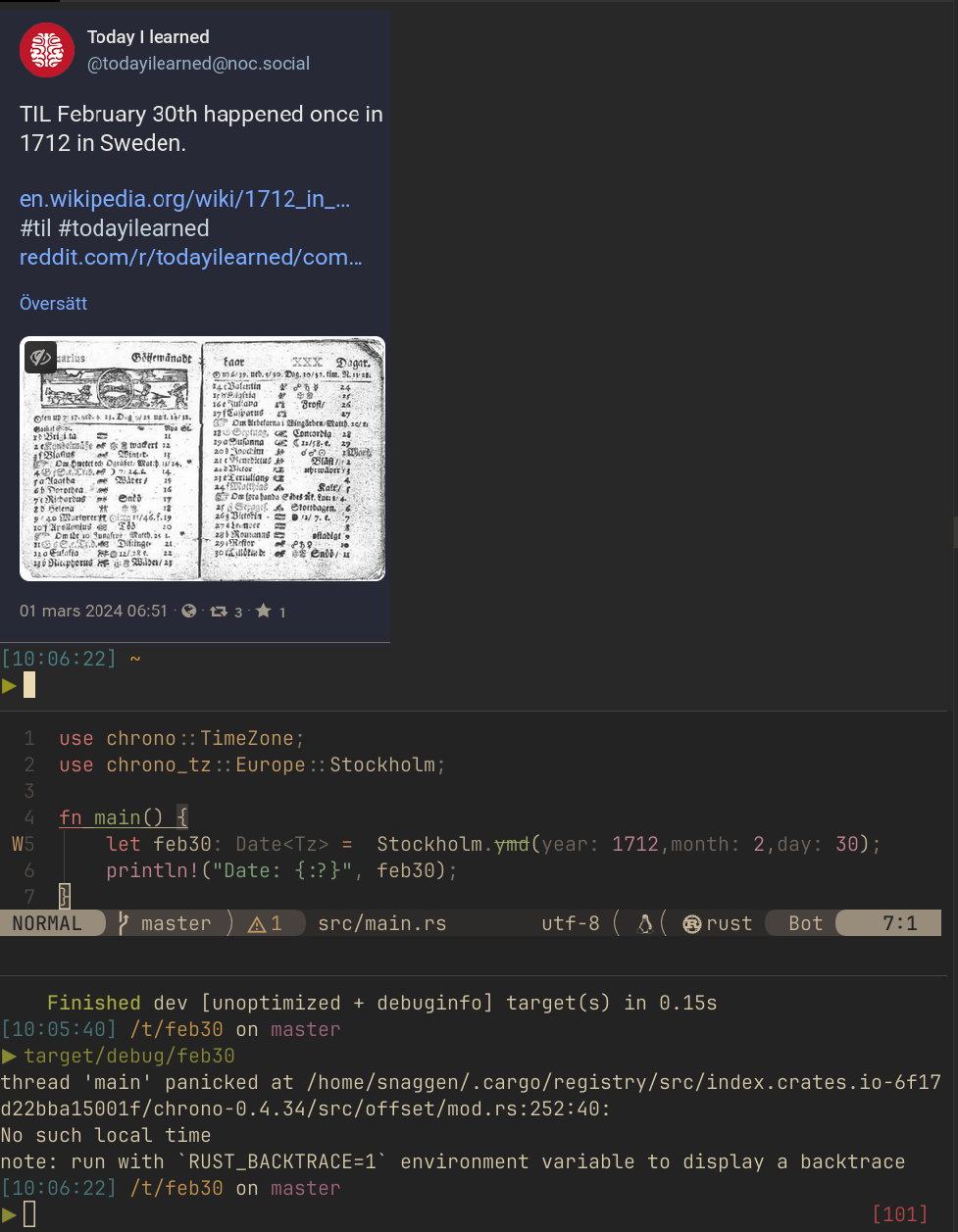TIL: Sweden had February 30 in 1712 https://en.wikipedia.org/wiki/1712_in_Sweden , so I decided to see how chrono handled that.
use chrono::TimeZone;
use chrono_tz::Europe::Stockholm;
fn main() {
let feb30 = Stockholm.ymd(1712,2,30);
println!("Date: {:?}", feb30);
}
target/debug/feb30
thread 'main' panicked at /home/snaggen/.cargo/registry/src/index.crates.io-6f17d22bba15001f/chrono-0.4.34/src/offset/mod.rs:252:40:
No such local time
note: run with `RUST_BACKTRACE=1` environment variable to display a backtrace
Result (as expected): Not well! 😄
I also tested Java with
ZonedDateTime feb30 = ZonedDateTime.of(1712,2,30, 0,0,0,0, ZoneId.of("Europe/Stockholm"));
with simmilar result
java.time.DateTimeException: Invalid date 'FEBRUARY 30'
So, lets take a minute of silence for all the programmers of history related software, may the spagetti monster have mercy on their souls.

Didn't they switch to a license with stronger mechanisms to keep the source available? SSPL, is basically AGPL but have even stronger protection from large corperations to use the code in their data centers without contributing the changes back. This is basically a move to prevent AWS/Google/Microsoft/et al, from leaching on the contributors work without giving anything back.
Or am I reading this wrong?
EDIT: Note, that the Mastodon account is to an AWS employee.... so for him, this might be bad, since it no longer allows them to have their own internal fork without contributing back. Now, they will need to use a real for and maintain that them selves without leaching on the redis contributors.